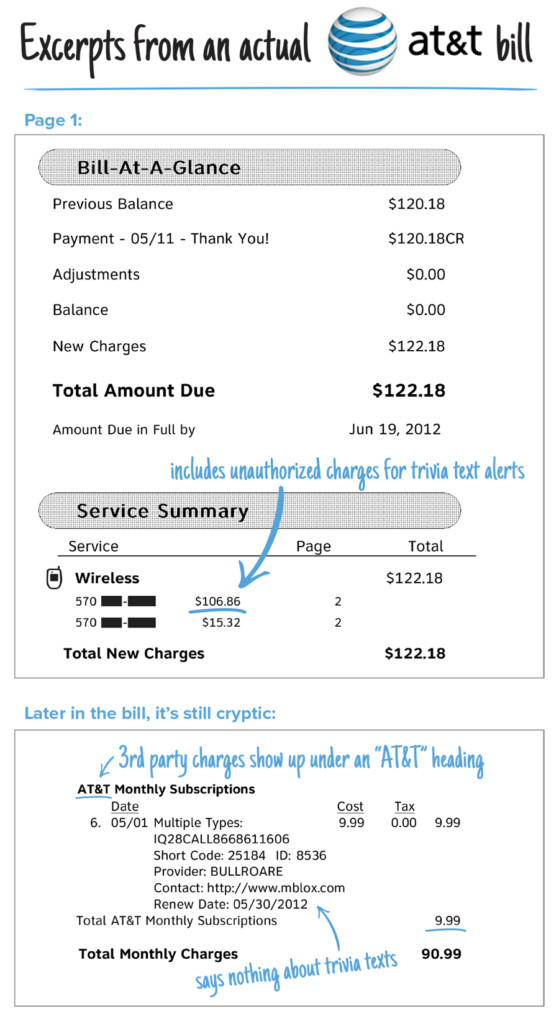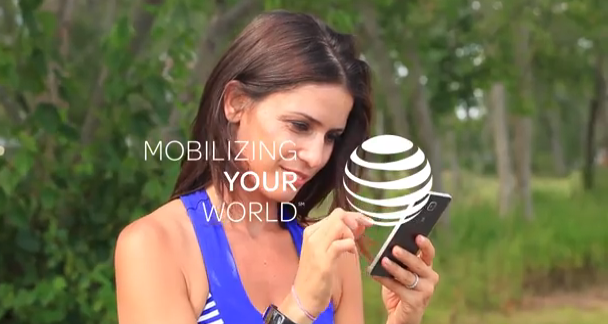
Companies Accused of Greenwashing
When companies green it, they better mean it.
Officials urge consumers to carefully check cellphone bills for unauthorized charges.
From 2012-2013, AT&T made about $270 million in revenues from third-party charges placed on customers’ phone bills. On Wednesday, the company agreed to pay back less than half of that in a joint settlement with the FTC, FCC and 51 attorneys generals billed as the largest of its kind regarding The practice of charging customers for cell phone services that they did not request or approve. allegations.
“We allege that AT&T had strong reason to suspect that the charges were unauthorized, yet continued to place these charges on its customers’ bills,” said FTC Chairwoman Edith Ramirez at a joint press conference. “… But instead of acting to stop the charges, AT&T continued to make hundreds of millions of dollars from the practice by taking at least 35 percent of every charge and refused to provide refunds to many consumers.”
In 2011 alone, the FTC’s complaint states, AT&T received more than 1.3 million calls to its customer service department about the charges. The complaints about the charges prompted an AT&T employee to write in an email: “Cramming / spamming has increased to a new level that cannot be tolerated from an AT&T or industry perspective.”
However, federal officials said AT&T continued to make it hard for consumers to get refunds, including by telling consumers there was nothing the company could do, or telling them to call the third-party company themselves about the charges, but then not providing enough information on how to contact the third-party. Also, AT&T did not require the third-party company to prove customers had authorized the charges.
Many of the charges for such texting services as horoscopes and celebrity gossip that consumers never signed up for — which often totaled $9.99 a month – were lumped into the consumers bills in hard-to-detect forms, such as being called “Basic Data Plan” or as part of a line called “AT&T Monthly Subscriptions.”

The agreement settles allegations that the company, dating back to 2009, unlawfully placed charges on cellphone bills that consumers never authorized and didn’t want, made it “difficult if not impossible” for consumers to identify the charges, and told the companies originating the charges that it would help lower refunds by limiting them to two months worth even if the customer was billed for the authorized charges for a year. The AT&T complaint is the seventh mobile cramming case brought by the FTC since 2013.
RELATED: The Fine Print in T-Mobile’s Alleged Overbilling Scam
Under the terms of the settlement, AT&T will pay $80 million to the FTC for customer refunds, and $25 million to the FCC and 50 states and the District of Columbia. It also requires that the company notify consumers who were wrongly billed, obtain expressed consent for third-party charges, clearly and conspicuously disclose the charges, and bolster its refund practices.
In a statement issued Wednesday, AT&T said last year it discontinued third-party billing for these types of services. In addition, spokesman Mark Siegel said:
Today, we reached a broad settlement to resolve claims that some of our wireless customers were billed for charges from third-parties that the customers did not authorize. This settlement gives our customers who believe they were wrongfully billed … the ability to get a refund.
Federal officials said they had also taken action against some of the third-party companies and said the AT&T case was part of a continual joint effort to enforce “a time tested principle of consumer protection, that consumers must not be charged for business or service that they didn’t authorize.” Ramirez said she’d like to see cellphone companies give consumers the ability to opt out and block all forms of third-party billing.
FCC Chairman Tom Wheeler advised consumer to search their bills for charges that seem vague including looking specifically for charges that come to $9.99 and to ask their carriers if they have any third-party charges on their bills.
Consumers who feel they were fraudulently charged by AT&T can apply for refunds here.
When companies green it, they better mean it.
The pandemic has also triggered lawsuits over privacy issues with some video conferencing apps, and more.
Why the FTC should consider virtual influencers as it reviews its Endorsement Guides.


